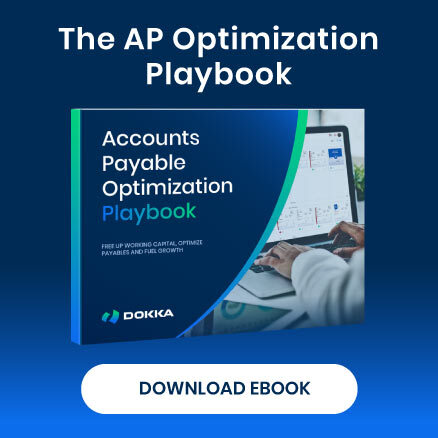Collecting invoice approvals is an important task for any accounts payable (AP) team, as it ensures vendors are paid accurately and on time. However, this process can be incredibly challenging for several reasons.
Firstly, the AP team often deals with a high volume of invoices. Manually entering, verifying, coding, and routing each invoice takes a lot of time and effort. This manual handling increases the risk of errors, such as incorrect data entry or misrouted invoices, which can lead to payment delays and strained vendor relationships.
Secondly, the approval process itself can be complicated, involving multiple people across different departments. Getting the right person to review and approve each invoice can be slow and confusing. Invoices might get stuck in someone’s inbox or even lost, causing further delays. This often happens in practice.
Compliance with company policies and regulations is another major concern. Every invoice needs to meet specific criteria before it can be approved. Manually checking each one is not only tedious but also prone to mistakes, risking non-compliance and potential penalties. This can be particularly challenging for larger organizations that have a complex hierarchy of approval levels and multiple sets of rules to follow.
Moreover, the traditional invoice approval process is highly paper-based. Invoices are often printed, passed around for approvals, and then stored in physical filing cabinets. This makes it difficult to track the status of each invoice and can result in lost or misplaced documents.
To address these challenges, many organizations are turning towards approval management software, as a part of an AP automation platform. AP automation solves these problems by streamlining the entire approval process. It automates data capture, ensures accurate routing, and enforces compliance, making the invoice approval process faster, more accurate, and more transparent.
Top 7 Ways AP Automation Can Fix the Invoice Approval Process
Implementing AP automation can transform the workflow of invoice processing, bringing numerous advantages to your organization. Leveraging technology to handle repetitive and time-consuming tasks not only reduces errors and delays but also enhances overall efficiency. Let’s take a deeper look why you need it. Here are the top 7 ways AP automation can significantly improve the invoice approval process:
- Automated Data Capture and Entry
- Streamlined Approval Workflows
- Real-Time Tracking and Notifications
- Automated Matching
- Compliance and Policy Enforcement
- Detailed Reporting and Analytics
- Integration with ERP
1) Automated Data Capture and Entry
AP automation software utilizes advanced technologies like optical character recognition (OCR) and machine learning algorithms to automatically capture and enter data from invoices. This automated process starts when an invoice is received via email, scanned, or uploaded into the system.
The OCR technology reads the invoice, extracts key information such as vendor details, invoice number, date, line items, and amounts, and inputs this data directly into the AP software. Automated data capture and entry eliminate the need for manual data entry, which is not only time-consuming but also susceptible to human error.
By ensuring that data is accurately captured at the outset, invoices can be processed more swiftly and routed to the appropriate approvers without delay. This acceleration in the initial stages of the approval process helps reduce the overall cycle time.
Furthermore, accurate data entry minimizes the risk of errors that could otherwise cause rejections or require additional review, leading to a smoother and faster approval process.
2) Streamlined Approval Workflows
AP automation platforms, such as DOKKA, are designed to create customized, streamlined workflows tailored to an organization’s specific needs. These workflows dictate how invoices move through the approval process, ensuring that each invoice is automatically directed to the right approvers based on predefined criteria such as department, amount thresholds, or vendor type.
Workflow automation includes rule-based routing, which ensures that invoices bypass unnecessary steps and go directly to the responsible parties. Streamlined workflows eliminate the inefficiencies associated with the manual routing of invoices. By automating the routing process, invoices reach the right approvers faster, reducing the likelihood of bottlenecks.
Approvers receive invoices relevant to their role and authority level, enabling a more organized and efficient approval process. Additionally, automated reminders and escalation procedures ensure that pending approvals are addressed promptly, further enhancing the speed and reliability of the invoice approval process.
3) Real-Time Tracking and Notifications
One of the standout features of AP automation software is its ability to provide real-time tracking of invoice statuses.
From the moment an invoice enters the system until it is fully processed, stakeholders can monitor its progress through a centralized dashboard. Automated notifications and alerts are sent to relevant parties at each stage of the process, prompting them to take necessary actions.
Real-time tracking and notifications offer significant advantages in the approval process. Approvers and other stakeholders are kept informed about the status of invoices, reducing the time spent searching for information or following up on approvals.
Automated alerts ensure that approvers are promptly notified when their action is required, preventing delays caused by oversight or forgetfulness. This transparency and proactive communication help maintain momentum in the approval process and ensure that invoices are processed within the desired timelines.
4) Automated Matching
AP automation software is equipped with capabilities to automatically match invoices against corresponding purchase orders (POs) and delivery receipts. This three-way matching process ensures that the details on the invoice align with what was ordered and received. The software flags any discrepancies for review, such as price variations, quantity mismatches, or missing information.
Automated matching and validation streamline the approval process by verifying the accuracy of invoice details before they reach the approvers. This pre-validation reduces the workload on approvers, allowing them to focus on exceptions and discrepancies rather than routine checks.
By ensuring that only accurate and validated invoices reach the approval stage, the process becomes faster and more reliable. This also minimizes the risk of errors that could lead to disputes with vendors or financial inaccuracies.
5) Compliance and Policy Enforcement
Compliance with internal policies and external regulations is crucial in the invoice approval process.
AP automation software embeds compliance checks into the approval workflows, ensuring that every invoice adheres to company policies such as spending limits, approval hierarchies, and required documentation. The software can also be updated to comply with changing regulatory requirements, providing flexibility and ensuring ongoing compliance.
By automating compliance, AP automation solutions reduce the risk of non-compliance and fraud. Invoices are automatically checked against compliance criteria before reaching the approvers, ensuring that only those meeting all requirements are considered for approval.
Automated compliance also creates a clear audit trail, which is essential for internal audits and regulatory inspections, providing peace of mind and reducing the risk of penalties or reputational damage.
6) Detailed Reporting and Analytics
Many AP automation solutions come with powerful reporting and analytics tools that provide insights into the performance of the invoice approval process. These tools can generate detailed reports on various metrics, such as approval cycle times, the number of invoices processed, exceptions, and bottlenecks.
Analytics can also identify trends and patterns, helping organizations understand the efficiency and effectiveness of their invoice processing.
Detailed reporting and analytics enhance the approval process by providing actionable insights. Organizations can use these insights to identify areas for improvement, such as stages in the workflow where delays commonly occur or approvers who are frequently backlogged.
This information enables continuous optimization of the approval process, ensuring that it becomes more efficient over time. By understanding and addressing the root causes of inefficiencies, organizations can streamline their AP operations and improve overall performance.
7) Integration with ERP
Many AP automation solutions are designed to seamlessly integrate with ERP systems, allowing for a smooth transfer of data and information between the two.
ERP integration eliminates manual data entry and ensures that all relevant information is captured accurately. It also ensures that financial data is updated in real-time, providing accurate and up-to-date information for financial reporting and decision-making.
Integration with ERP and other accounting systems enhances the approval process by providing approvers with comprehensive and accurate information. When reviewing invoices, approvers can access all relevant financial data and context, such as budget availability, historical transactions, and vendor performance, directly within the AP automation software. This facilitates more informed and accurate approval decisions, reducing the likelihood of errors or oversights.
Additionally, seamless integration ensures consistency and accuracy across all financial records, supporting better financial management and reporting.
Final Thoughts
Implementing AP automation can revolutionize the invoice approval process, addressing numerous challenges faced by accounts payable teams. By leveraging advanced technologies and streamlined workflows, AP automation solutions offer significant benefits that enhance efficiency, accuracy, and compliance throughout the process.
For organizations seeking to streamline their AP operations and achieve greater efficiency, DOKKA offers a robust AP automation solution. With its comprehensive features, including automated data capture, streamlined workflows, real-time tracking, and ERP integration, DOKKA enables organizations to optimize their invoice approval processes effectively.
Embracing AP automation with DOKKA not only improves operational efficiency but also supports compliance, reduces costs, and enhances overall financial management. Book a demo call with our team to explore how DOKKA can transform your invoice approval process today.






